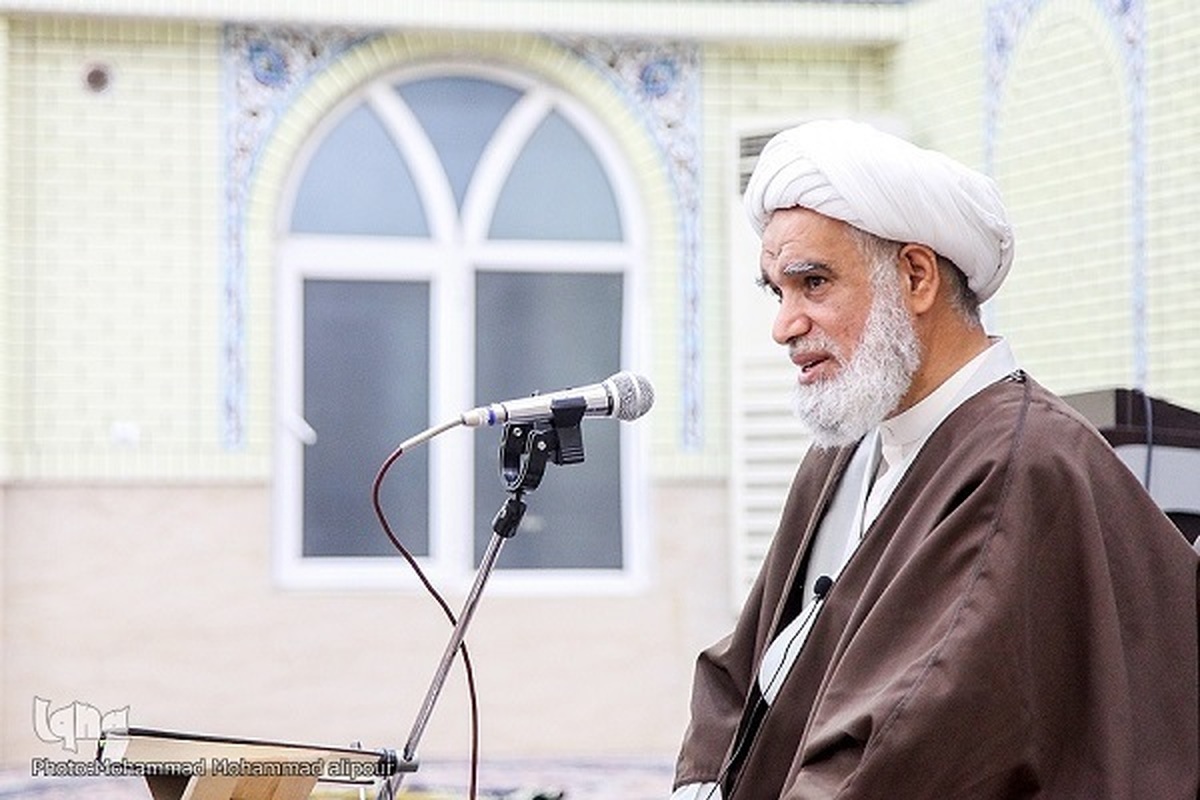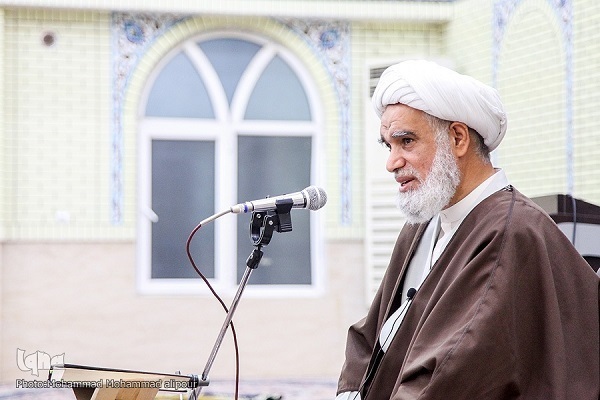Cleric Highlights Islamic Revolution’s Solutions for Today’s Crises


In an article for IQNA, Ayatollah Abbas Kaabi, deputy head of the Islamic Seminary Teachers’ Association and member of the Presiding Board of the Assembly of Experts addressed the roots of the crises of Western civilization and the Islamic Revolution’s solutions to resolve these crises.
Following are excerpts from the article:
In the name of God, the Most Compassionate, the Most Merciful
“We sent a Messenger to every nation, saying: ‘Worship Allah and avoid the idols’. Amongst them were some whom Allah guided, and some justly disposed to error. Travel in the land and see what was the end of those who belied (the Revelation and the prophets)! (Verse 36 of Surah An-Nahl)
The Islamic Revolution of Iran was a “civilizational earthquake” that invalidated the hypothesis of the “death of God” and the elimination of religion from the social and political arena. Today, comparing the monotheistic vision of the Islamic Revolution with the secular vision of the West reveals the crises of the modern world with greater clarity.
The West: A Civilization That Removed God from the Management of Life
Modern Western civilization, with its secularism, removed religion from the public sphere and created new idols for humanity:
The idol of capitalism: The domination of financial giants, cartels and empires of leeches has taken global politics and economics hostage. Behind the scenes of political decisions, the triangle of money, force and hypocrisy reigns. Class divisions, discrimination and structural inequality are the direct result of this idolatry.
The idol of hedonism: The primacy of individualism and extreme pleasure-seeking has created a new slavery for contemporary man. The true meaning of life and true pleasure - especially within the safe confines of the family - have been destroyed.
The idol of power: The pharaohs of our time have built pharaonic security and a unipolar world order on the basis of (What pharaoh said) “I am your Lord, the Most High.” The humiliation of free nations, the incitement of war, mass murder, and bloodshed in international relations have become the standard of politics and domination.
The result of this path is the production of complex crises: the crisis of oppressive governance, the crisis of spirituality, the crisis of security, the collapse of the family, widespread depression, social inequality, the environmental crisis and, ultimately, the death of humanity; a clear example of which is the crimes in Gaza. The secular West has lost its true compass and has left humanity in neglect and confusion.
Read More:
Islamic Revolution: Return to God and the Narrative of Hayat Tayyiba
On the other hand, the Islamic Revolution, with the slogan ‘Sovereignty of Allah’, paved the way for man to return to God and presented an authentic narrative of Hayat Tayyiba:
A resistant and justice-oriented economy: The economy should serve humanity, not humanity serving the economy. Generating wealth and growth is valuable, but consumerism, extravagance, luxury, and ostentation are anti-values.
Human Dignity and True Freedom: True freedom is servitude to God and service to humanity. True pleasure finds meaning in divine proximity and spirituality.
Anti-arrogance and Islamic dignity: Power is a tool for enforcing justice and defending the oppressed, not domination and oppression.
Civilizational Clash in an Age of Crisis
Today, the effectiveness of these two civilizational narratives in facing global crises is obvious:
Moral Crisis: The West is mired in moral relativism; the Islamic Revolution emphasizes eternal moral and human values.
Governance Crisis: Western democracy is plagued by populism, the vicious cycle of wealth and power, and the engineering of public opinion by the media. In contrast, religious democracy combines divine legitimacy with popular acceptance and emphasizes the selection of the best, meritocracy, and the efficiency of the governance system.
Crisis of Justice: Western capitalism is the greatest machine for producing inequality in history. The Islamic Revolution has placed justice and the fight against corruption at the center of governance; however, the damage caused by Western development models in the country is also tangible and requires serious reform.
Spirituality crisis: The West presents a false and inauthentic spirituality; the Islamic Revolution introduces monotheistic spirituality, human dignity, servitude to God, and civilizational jihad.
Read More:
Conclusion: The Battle of Narratives and the Necessity of Returning to God
Today’s confrontation is not just a political or military conflict; it is a “battle of civilizational narratives.” Western experience has shown that humanity cannot build a just, secure, and meaningful society without God. In contrast, the discourse of the Islamic Revolution presents the return to God and monotheistic rule as a historical and civilizational necessity.
The path to salvation for humanity in the present era lies only in the combination of science, faith, rationality, spirituality, justice, and progress. Moving beyond secular modernity and moving toward a “new monotheistic order” is the path that the Islamic Revolution has set before humanity as a living and dynamic model; an order in which faith, science, efficiency, ethics, justice, responsibility, and spirituality move together in synergy and harmony.
4303388



